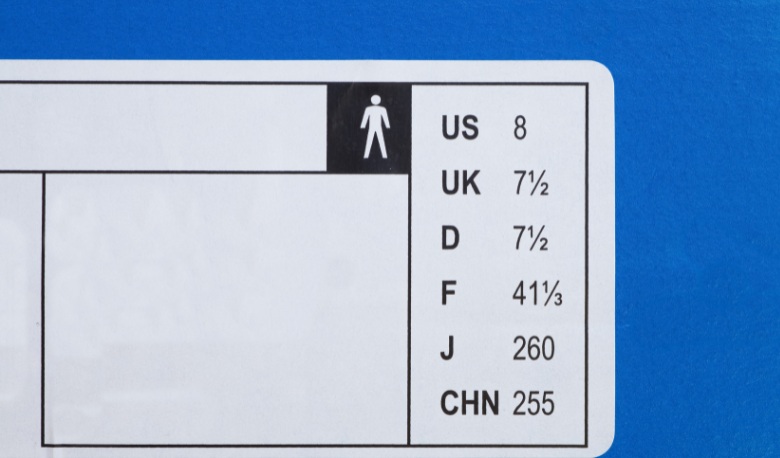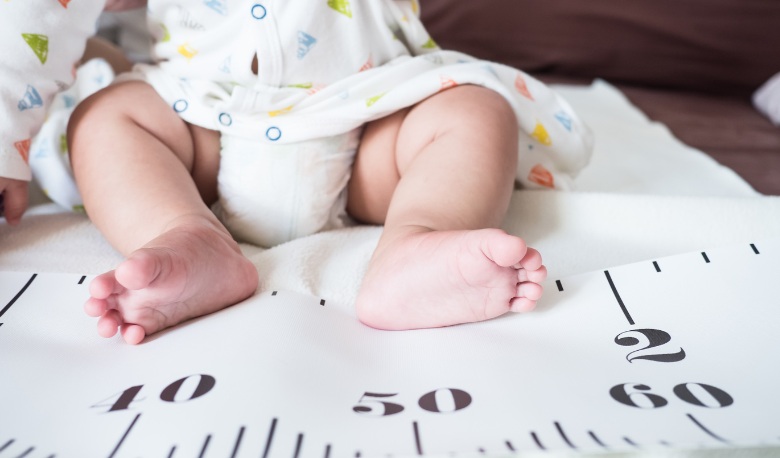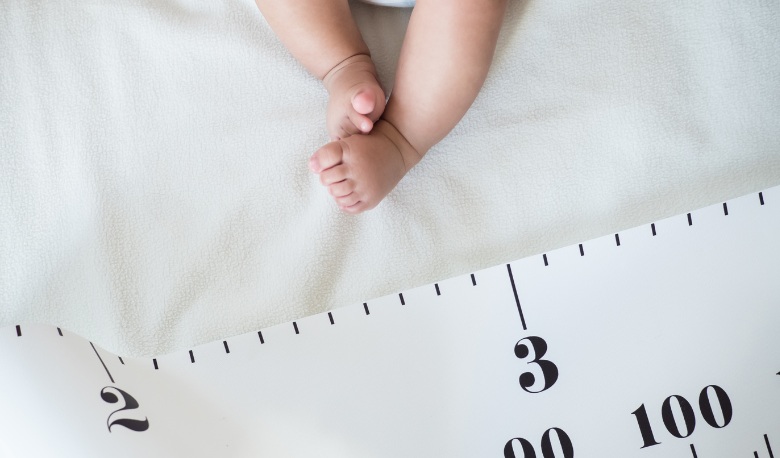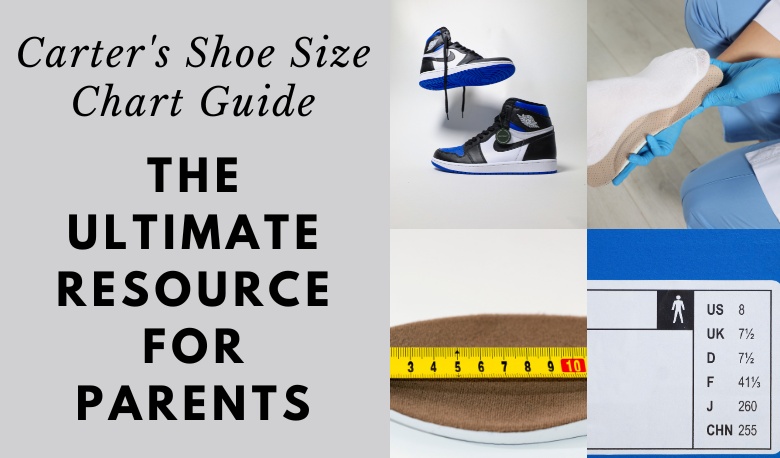Finding the perfect pair of shoes for your little one is a joyous experience. But with so many adorable Carter’s options to choose from, figuring out the right size can feel overwhelming! That’s where this ultimate Carter’s shoe size chart guide comes in. We’ll cover everything you need to know about Carter’s sizing, how to measure your child’s feet, and tips for ensuring a comfortable fit.
Why Choose Carter’s?
Carter’s is a beloved brand for parents, known for its high-quality, comfortable, and stylish children’s clothing and footwear. Here’s why Carter’s shoes are great for growing feet:
Age-specific designs
Carter’s understands that a baby’s footwear needs are vastly different from a running-around preschooler’s. Their shoes are carefully designed to support each developmental stage. This means soft, almost sock-like crib shoes for pre-walkers, flexible yet sturdy sneakers for those first confident steps, and everything in between to support healthy foot development while keeping kids comfortable.
Comfort
Little feet are incredibly sensitive! Carter’s prioritizes comfort with soft, breathable materials, linings that minimize irritation, and flexible soles that allow natural movement. Happy feet mean happier kids, and comfortable shoes often mean less resistance when it’s time to get those shoes on in the morning.
Durability
Kids put their shoes through a lot – puddles, playground scuffs, impromptu dance sessions… Carter’s shoes are thoughtfully constructed to withstand the adventures of childhood. Quality materials and construction mean less waste from shoes falling apart too soon, and more importantly, reliable support for your child as they explore.
Adorable styles
Let’s be honest, tiny shoes are just plain cute! Carter’s takes it a step further with a huge range of colors, prints, and designs to complement any outfit or express your little one’s unique personality. From classic styles to playful themes, there’s a Carter’s shoe to make both kids and parents smile.

Understanding Carter’s Shoe Size Chart
Carter’s simplifies shoe sizing with a user-friendly chart typically broken down into three main categories:
- Baby & Toddler: Sizes range from 0 to 13, with smaller increments for precise fitting.
- Little Kid: Sizes range from 1 to 10.5, bridging the gap between toddler and bigger kid sizes.
- Big Kid: Sizes usually start at 11 and go up to adult sizes, covering older children.
The size chart will usually provide foot length measurements in inches or centimeters to correlate with the corresponding shoe size.
Carter’s Toddler Shoe Size Chart
| US Size | Euro Size | Inches | Centimeters |
|---|---|---|---|
| 5T | 20 | 4.75 | 12.1 |
| 5.5T | 21 | 5 | 12.7 |
| 6T | 22 | 5.125 | 13 |
| 6.5T | 22 | 5.25 | 13.3 |
| 7T | 23 | 5.5 | 14 |
| 7.5T | 24 | 5.625 | 14.3 |
| 8T | 24 | 5.75 | 14.6 |
| 8.5T | 25 | 6 | 15.2 |
| 9T | 25 | 6.125 | 15.6 |
| 9.5T | 26 | 6.25 | 15.9 |
| 10T | 27 | 6.5 | 16.5 |
| 10.5T | 27 | 6.625 | 16.8 |
| 11T | 28 | 6.75 | 17.1 |
| 11.5T | 28 | 6.875 | 17.5 |
| 12T | 29 | 7 | 17.8 |
| 12.5T | 30 | 7.125 | 18.1 |
| 13T | 30 | 7.25 | 18.4 |
Carter’s Little Kid Shoe Size Chart
| US Size | Euro Size | Inches | Centimeters |
|---|---|---|---|
| 1Y | 31 | 7.625 | 19.4 |
| 1.5Y | 32 | 7.75 | 19.7 |
| 2Y | 32 | 7.875 | 20 |
| 2.5Y | 33 | 8 | 20.3 |
| 3Y | 33 | 8.125 | 20.6 |
| 3.5Y | 34 | 8.25 | 21 |
| 4Y | 34 | 8.5 | 21.6 |
| 4.5Y | 35 | 8.625 | 21.9 |
| 5Y | 35 | 8.75 | 22.2 |
| 5.5Y | 36 | 9 | 22.9 |
Carter’s Big Kid Shoe Size Chart
(Sizing usually mirrors standard adult shoe sizes at this point)
| US Size | Euro Size | Inches | Centimeters |
|---|---|---|---|
| 6Y | 37 | 9.125 | 23.2 |
| 6.5Y | 37 | 9.25 | 23.5 |
| 7Y | 38 | 9.5 | 24.1 |
Important Notes:
- T vs. Y: The letter “T” designates toddler sizes, while “Y” is typically used for little kid and big kid sizes.
- Age ranges are approximate: Shoe sizes are based on foot length, not solely on a child’s age.
- Always measure: For the best fit, measure your child’s feet regularly.

How to Measure Your Child’s Feet at Home
Getting an accurate foot measurement is crucial for finding the right Carter’s shoe size. Here’s how:
Timing: Measure in the Evening
Children’s feet naturally swell a little throughout the day due to activity and gravity. To get the most accurate measurement for shoe fitting, it’s best to measure their feet at the end of the day when they’re at their largest.
Preparation: Set Up Your Measuring Station
Find a flat surface and place a piece of paper against a wall. Have your child stand barefoot on the paper, their heels gently touching the wall. Make sure they are standing with their weight evenly distributed on both feet, not leaning or fidgeting excessively (this can be tricky with wiggly toddlers!).
Tracing: Get an Accurate Outline
With a pencil or pen, carefully trace the outline of each foot. Keep the pencil as vertical as possible, going right up against the edge of their foot for the most precise outline. Don’t worry if it’s not perfect, you’re just aiming for the general shape and longest points.
Measuring: From Heel to Longest Toe
Using a ruler or tape measure, measure the distance between the back of the heel and the very tip of the longest toe on each foot tracing. Take note of both measurements, as one foot might be slightly longer than the other.
Referencing the Chart: Find the Right Size
Now it’s time to consult the Carter’s shoe size chart. Use the larger foot measurement and correlate it to the specified size on the chart. Remember, the size chart is a guide – a little extra wiggle room is always a good idea, especially for fast-growing young children!

Important Tips for Finding the Perfect Fit
- Room to grow: Leave approximately a thumbnail’s width of space between your child’s longest toe and the end of the shoe.
- Width matters: If your child has wider feet, consider going up half a size or looking for styles marked as “wide.”
- Sock check: Always measure with socks on that your child will typically wear with the shoes.
- The wiggle test: Have your child stand up in the shoes and wiggle their toes. There should be just enough space to move.
We’re Here to Help!
Choosing the right Carter’s shoe size is essential for happy feet and confident steps. Use this guide as your trusted reference, and remember, a little extra wiggle room is always a good idea!
Let us know if you have any questions or need more personalized advice – we’re always happy to help you find the perfect shoes for your precious little one.


